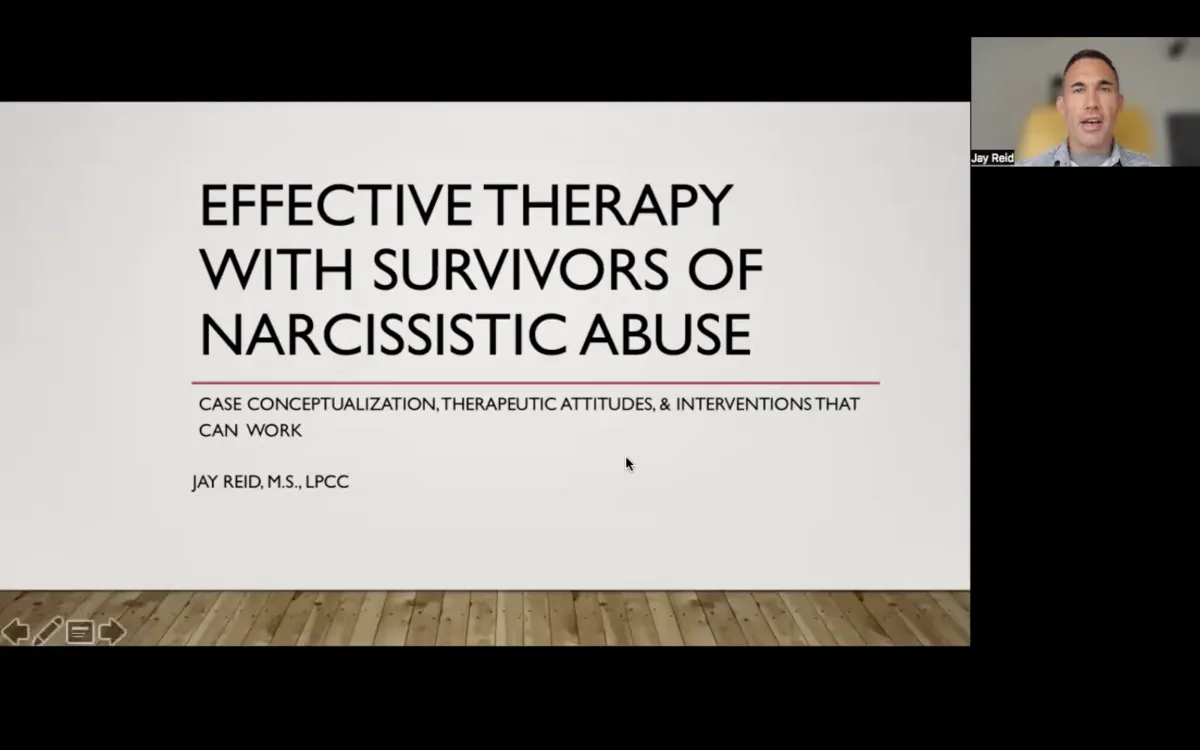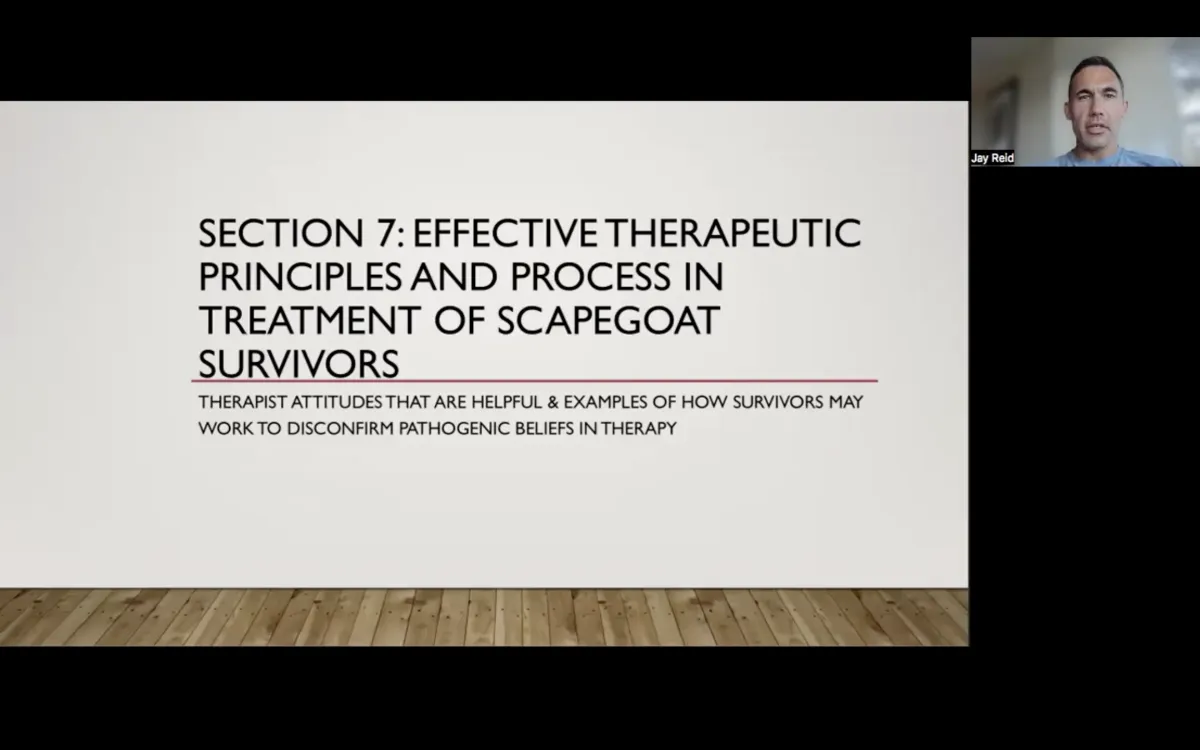
Learn a Treatment for Survivors of Narcissistic Abuse that Works
This 3-hour online self-study course will teach you what it's like for a child to survive a narcissistic parent, how to tailor treatment to each client's specific goals and traumas, and how to help your clients feel safe to be their whole selves.
Get 3 CE credit for LMFT's, LPCC's & LCSW's!
How this program will help you!

STEP 1
narcissism in parents and its effects on a Child
A parent with Narcissistic Personality Disorder is not like other parents. How you can validate your clients' secret reality.
Someone who grew up with a narcissistic parent likely felt like an orbiting satellite to the parent. Yet, the parent may have cultivated an impression to the outside world that theirs was a loving and functional family. Survivors of such abuse are in need of a therapist who understands and validates what it was really like in their families of origin. This step explains the psychodynamics of the narcissist and why they dominate and intrude upon their children's lives.
Module 1: Introduction to Effective Therapy with Scapegoat Survivors of Narcissistic Abuse
Module 2: How a narcissistic parent’s grandiosity can lead to abuse of a child
Module 3: Patterns of narcissistic abuse in the family

STEP 2
introduction to Control-mastery theory
Help your clients break free from the self-diminishing beliefs they needed to survive narcissistic abuse
Have you felt fearful of your narcissistic abuser's criticism? And equally afraid of losing them? Both are common for survivors of narcissistic abuse. Psychological and emotional distance from such stress is an essential part of recovery. In this section you'll learn and practice why distance is not something to feel guilty about but can be an essential act of self-care.
Module 4: Introduction to Control-mastery theory (CMT)
Module 5: Five steps to case conceptualization

STEP 3
Control-mastery theory in action
Help your clients know they don't have to play by the narcissist's rules anymore...
The beauty of Control-Mastery Theory is that it centers treatment on each individual client and recognizes the client's own efforts to master the trauma of narcissistic abuse. Therapy is a relationship the client can use to test out and hopefully discover that the beliefs they adopted to survive the abuse are no longer necessary to feel connected to others. This section of the course puts this into action. I offer several case examples that show how survivors often work in therapy to disconfirm beliefs that they are defective or undeserving.
Module 6: Control-Mastery Theory Applied to Scapegoat Survivors
Module 7: Effective Therapeutic Principles & Process in Treatment of Scapegoat Survivors

7 Video Lessons
3 hours Total

3 CE Credit Hours
LPCC's, LMFT's & LCSW's in California can receive 3 BBS-approved CE credits. Master's level therapists from other states may check with their state CE requirements to see if they will accept California's CE credits.

Case Formulation Worksheet
Formulate your clients' goals, the beliefs in their way and how to use the therapeutic relationship to disconfirm those beliefs so they can reach their goals.
What do students say about this course?
Take it from those who have already taken the course...
Lucy

"Jay was great: very much at ease, thoughtful, warm, and a great instructor. Very worthwhile course."
Tom

"Mr. Reid's presentation was very thorough, organized, and clear. His description of the complex projective defenses used by narcissistic parents was very helpful clinically."
What's in the course?
7 Videos (3 hours total)

Length: 17min
Module 1
What is pathological narcissism?
How the narcissist's artificially inflated self-worth results in hurting people close to them
The grandiose vs covert narcissist

Length: 27min 30sec
Module 2
How a child's agency, anger and abilities are often sacrificed in relationship to the narcissistic parent
Why a narcissistic parent seeks to dominate the family & the consequences of not submitting for the scapegoat child
How a narcissistic parent can intrude and take over a child's life
The narcissistic parent's envy can lead to vindictive attacks on the scapegoat child

Length: 8min 07sec
Module 3
How a family is organized around the narcissistic parent's pathology
How a scapegoat child is selected and devalued by the narcissistic parent

Length: 1 hour
Module 4
Clients achieve insight when they find it psychologically safe enough to do so
How clients work in therapy to find conditions of safety
The role of pathogenic beliefs in the child maintaining an attachment to the narcissistic parent
How to attune to each client's specific search for safety so they can disconfirm their pathogenic beliefs

Length: 7 min 23 sec
Module 5
Formulate your cases with these five questions:
What are this client's goals?
What beliefs currently stand in the way of these goals?
What traumas from narcissistic abuse led to these beliefs?
How might the client test out these beliefs in therapy?
What therapist interventions and attitudes would help the client test and disconfirm these beliefs in therapy?

Length: 29min 06sec
Module 6
8 pathogenic beliefs commonly held by scapegoat survivors of parental narcissistic abuse
Distilling the survivor's 'healthy' goals for therapy from goals that comply with pathogenic beliefs
The key traumas suffered by the scapegoat child of the narcissistic parent

Length: 35min 14sec
Module 7
3 in-depth case examples of how scapegoat survivors have tested pathogenic beliefs in therapy
How to apply the 5-step case conceptualization to each of the 3 case examples
The importance of the client achieving distance from the narcissistically abusive people today
Arming your clients with information so that they can know the abuse was not their fault
Frequently Asked Questions
Can I get CE credit if I am licensed outside of California?
It is very possible. I am a CE provider approved by the California Association of Marital & Family Therapists (CAMFT). You can call or email your state licensing board to ask whether CE credits approved by CAMFT or California State Board of Behavioral Sciences are accepted in your state.
Is the course self-study or supervised learning?
The videos and assignments are self-study.
Is this original content or videos already on YouTube?
This course is all original content. A lot of time, research, and thought was put into creating this course with the hopes that it can help treatment providers in their efforts to offer empathic and effective therapy to survivors.
